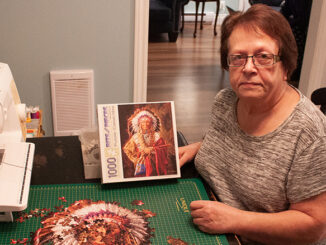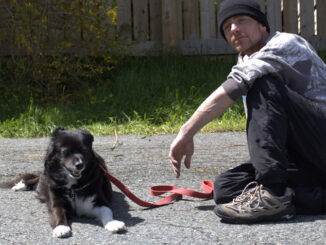Senior drivers face hurdles as they age and experts think there should be more testing.

Clifton Tam
Kicker
According to a report from the RCMP, the province saw car collisions more than double in 2022 and the number of deaths more than triple compared to the same period in 2021.
Last year, there were 16 deaths from April to June. In 2021, there were only five deaths during that period.
Julia Kent is the director of social responsibility and advocacy at the Canadian Automobile Association Atlantic.
“The number one road safety concern right now, and it has been for many years, is distracted driving,” she said.
According to the Canadian Automobile Association Atlantic, distracted drivers are eight times more likely to be involved in a car collision compared to non-distracted drivers.
Seniors behind the wheel are also becoming a concern, says Nick Penney, the general manager at Young Drivers of Canada.
“Senior driving is something that’s becoming an increasingly large problem, not just in this province, but across the board,” he said.
Once a driver reaches 75, a medical check is required when renewing a class 5, 6 or 8 driver’s licence. Class 5 is the most common.
However, Penney says it’s only the first step. He believes drivers over the age of 75 should be retested if they want to retain a licence.
Provinces like Ontario, says Penney, have already introduced similar measures for senior drivers.
In Ontario, people 80 or older are mandated to attend a group education session every two years when renewing their driver’s licence. For commercial drivers, they’re required to pass a road test every year for people who are 80 or above.
“Something similar needs to be brought in here,” said Penny.
“Because a car can be a weapon,” he said. “If you’re not trained on how to properly use that tool, it can be very dangerous.”
Car collisions are like throwing stones into a pond, Penney says, they have a ripple effect that impacts not only the drivers themselves, but also other people on the road. He says space between cars is essential, and drivers should make sure to leave an appropriate amount of stopping distance.
“Most people don’t realise it, but a car needs about nine metres to stop at 50 kilometres an hour,” said Penney.
People, he says, need to be highly focused and pay attention to what is happening on road.
When people get older, says Penney, they find it more difficult to adapt to changes in technology, infrastructure, and road upgrades.
Double-lane highways as well as roundabouts seem to confuse a lot of senior drivers, according to Penney.
New technologies such as lane detection or lane departure warnings can play a good role in ensuring driver’s safety, he says.
However, Kent says these new technologies are just a bonus and they can’t replace the skills taught by driving schools.
During winter, days become shorter, and road signs and lane markings are hard to see in the dark. Rumble strips on the sides of roads, reflective paint in road signs and lane markings, says Penney, can help in reducing the risk of collisions.
Penney and Kent suggest doing a driving course taught by professionals.
“Driving at all stages of life is a skill that we have to maintain and upkeep,” Kent said. “No matter how long you’ve been driving, or what your age is, there are skills that we need to sharpen.”
In Canada, most driving schools offer refresher courses, says Penney. They also offer courses that just focus on one skill instead of repeating the whole program.
Patience is the most important part of driving, says Penney.
“Not all drivers are bad drivers,” Penney said. “Not all drivers are out to get you and sometimes people just need a little bit of patience and a little bit of space in order to figure out what they’re doing to get to their destination safely.”




Be the first to comment